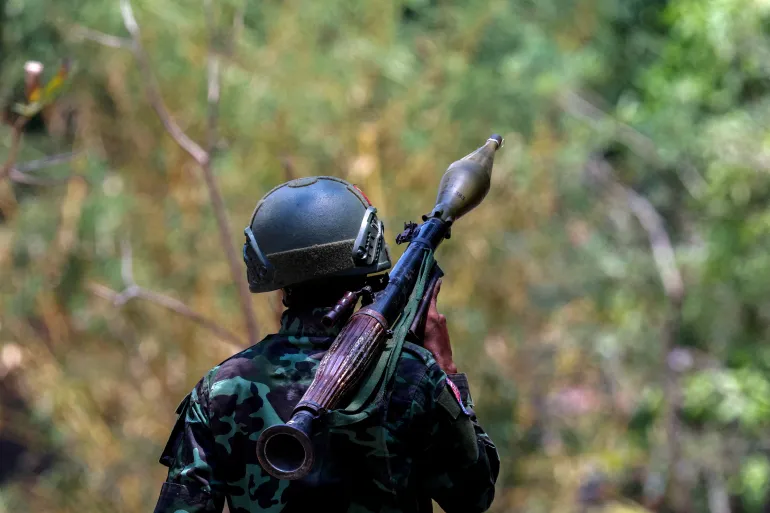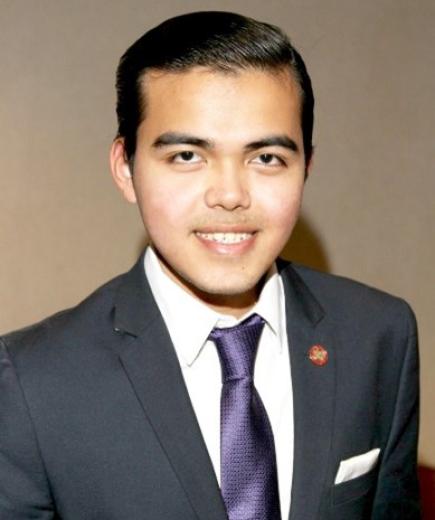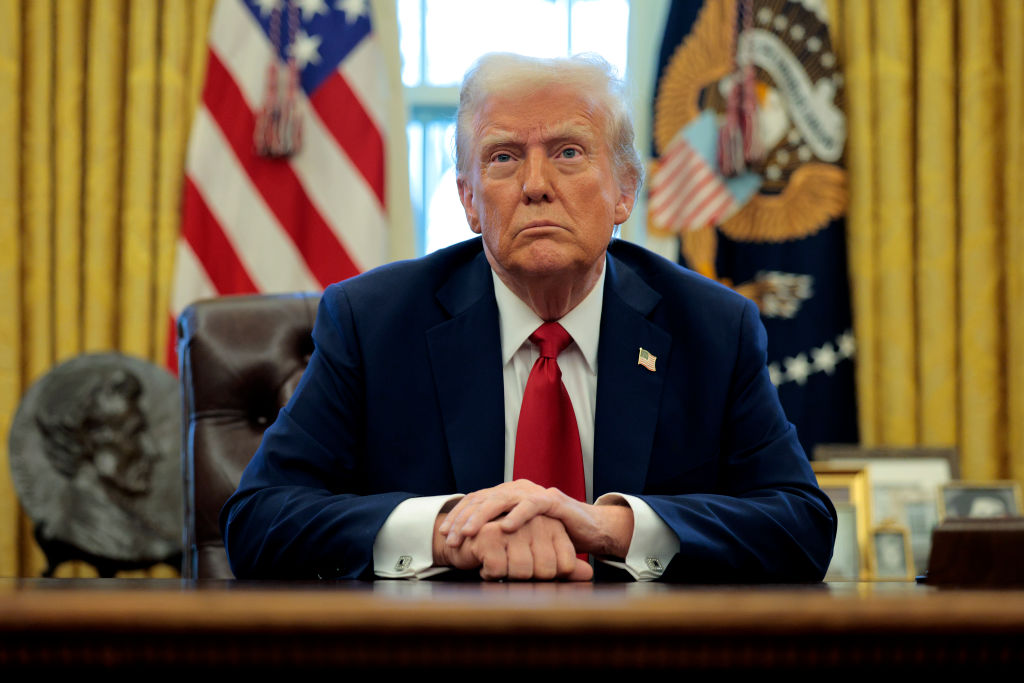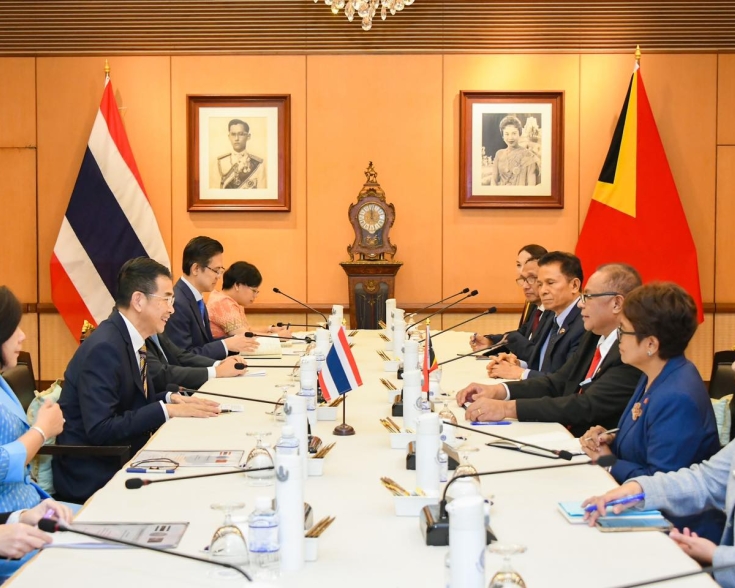Update on Myawaddy: Another Puzzle in Karen Resistance

On April 11, Karen National Union (KNU) announced the complete capture of Myawaddy Town on the Thai - Myanmar border, following the successful takeover of the last remaining Light Infantry Battalion (LIB) Headquarters 275 by the Karen National Liberation Army (KNLA) Brigade-6, Karen National Defense Organization (KNDO), and their allies. It follows the fall of several key military installations around Myawaddy Town, including LIB 355, LIB 356, and LIB 357 on March 7, 15, and April 5 respectively. These earlier events resulted in the surrender of over 300 soldiers and approximately 100 military families, marking one of the largest battalion surrenders since the coup. Such surrenders were reported to be negotiated by former Karen Border Guard Force (BGF) leader Col Saw Chit Thu, whose role in this conflict will be highlighted further below. Following the fall of LIB 275, approximately 200 soldiers, including the Commander of LID 44, retreated to the Thai - Myanmar Friendship Border Bridge 2, and stationed there without surrendering to the resistance.
The capture of Myawaddy proved to be a strategic gain for the resistance given the town’s position as a major trade hub, boasting a trade value of over 1 billion USD in the current fiscal year, making it the third-largest trade post in the country after Htee Khee in Tanintharyi and Muse in Northern Shan. However, the resistance's gain was made short-lived by the intervention of the former BGF, now rebranded as the Karen National Army (KNA), headquartered in Shwe Koko Town, 20 km North of Myawaddy Town, under the leadership of Col Saw Chit Thu.
Immediately after the capture of LIB 275 Headquarters, Col Saw Chit Thu dispatched his troops to assume control of the Myawaddy town, presenting themselves as a third-party 'mediator' to ease tensions and provide security. While initially maintaining a neutral stance and refraining from direct clashes between the military and KNLA forces, Saw Chit Thu's group tipped the scale in favor of the military within a week of fall of the LIB 275 base. The first instance came when Saw Chit Thu’s group reportedly helped sustain the troops stationed at the Thai - Myanmar Friendship Border Bridge 2 which had been holding their positions despite attacks by the resistance, supplying them with food and rations. Then, on April 23, some troops from the Border Bridge 2 re-entered the LIB 275 base and raised their flag, a home - coming reportedly arranged by Saw Chit Thu.
The whole recapture was done without firing a single shot from the military’s side which raised criticisms over KNU. In response, KNU spokesperson Padoh Saw Taw Nee stated that his troops had to withdraw from the base in order to “avoid falling into the trap of the enemy”, and while not specifying which enemy it is, it could be assumed that the withdrawal was to avoid direct confrontations with Saw Chit Thu’s group, which would only push the BGF closer to the military and end up serving the junta's interests. The following day, on April 24, Col Saw Chit Thu reportedly brokered a deal between KNLA Brigade 6 and the military, with KNA and the junta jointly administering the town while KNLA troops were to be completely withdrawn from the vicinity. As of this writing, some KNLA and allied troops have been deployed to Kawkareik to stall the advancing relief forces sent by the military to retake Myawaddy. However, with LIB 275 now under control of the military, disrupting resistance’s coordination and supply lines, any efforts to stop the reinforcements may prove challenging.
With the sudden change in dynamics influenced by third-party actors, the Myawaddy conflict has inevitably drawn attention to Col Saw Chit Thu. Saw Chit Thu had previously served as the commander of the Democratic Karen Buddhist Army (DKBA) which broke away from the parent organization Karen National Union (KNU) in 1994 and which played an integral role in the fall of Manerplaw, KNU’s Headquarters, in the following year. In 2010, upon the request of the then-Than Shwe military government, Saw Chit Thu and his followers transitioned into Border Guard Forces (BGF), and had assisted the military in its campaigns against KNU. In return for the assistance, Saw Chit Thu received a concession to engage in illicit businesses at the border area in Myawaddy Township. In 2017, he entered into a partnership with Yatai International Holdings Group, owned by a Chinese national She Zhijiang who was wanted by the Chinese Government and arrested in Bangkok by Thai authorities in 2022, to establish the "Shwe Kokko '' new city project valued at 15 billion USD.
Over time, Shwe Kokko has become a hub for gambling, cyberscams, human trafficking, and forced labor, with victims even coming from as far as Uganda. Financial scams, known as “pig butchering”, even targeting those in the West, have proliferated within this area, are set to be even grown further, especially following the influx of Chinese scam businesses from Northern Shan State after Operation 1027. In December last year, the UK, US, and Canada governments imposed sanctionson stakeholders of the Shwe Kokko project, including Saw Chit Thu and She Zhijiang. Another similar project within Saw Chit Thu's controlled zone is KK Park in which some of KNU’s leaders are reportedly involved, especially those from KNLA Brigade 7, which has consistently maintained a neutral stance since the coup and refrained from assisting the resistance in the recent Myawaddy battles.
Following the 1027 Operation which prompted the military to hand over Kokang BGF leaders to China, Saw Chit Thu, likely out of concern for his survival, changed his stance, declaring that his BGF troops would cut ties with the junta while no longer accepting salaries and other supplies from the military and rebranded the group to the KNA. On May 3, Col Saw Chit Thu issued an orderdemanding that foreigners involved in scam businesses in Myawaddy Township leave the country by October 31. However, it is also possible that scam centers would still find their ways to remain operational as they had previously, possibly by avoiding Chinese citizens in their targets and staying out of the radar of China.
To conclude, the Myawaddy conflict serves as yet another example of the complex nature of Karen resistance and politics, intertwined with and constrained by business interests at the leadership level which is not always aligned with interests of their subordinates and troops fighting on the ground, contrary to the simplistic narrative of united Karen resistance against the junta. By being subject to the influence of the KNA, the KNU also risks losing the trust of PDFs under its command, who were obviously angered by the deal. This might also prompt the future resistance efforts to shift from the Karen theater to elsewhere, particularly Shan or Kayah States or Central Dry Zone. At the same time, while the junta managed to at least convince the KNA in helping retain control of Myawaddy and recapture the LIB 275 base, it now finds itself in a precarious situation in dealing with the former BGF leader, which until recently it was confident about keeping under control. With the KNA's leadership, which is now overseeing 8,000 strong army, stated goal to establish an autonomous region akin to the United Wa State Army (UWSA), it highlights another backfiring by the junta's BGF scheme, which has persisted since 1963, in the post-coup era following the defection of the Karenni Nationalities People's Liberation Front (KNPLF) in Kayah State last year.







